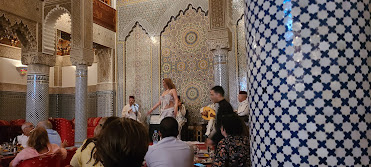Belly dancing in a religious country

A significant element of culture is beliefs. Beliefs are strongly influenced by religion, a system containing specific practices and perspectives that connect man to a higher being (Beyers, 2017). There are many religions, but two most prominent ones are Christianity and Islam with both accounting for approximately 55% of the world population that identify as religious (Statista, 2021). Religion manifests itself in behaviors and practices as followers practice instructions of their religion. Religion is so influential that it in-groups and out-groups are formed based on religion (Hannum et al., 2010). In an organization, any differences between members of different religion can be a fault line, an attribute that can split a group, where any conflict can spillover to society at large ( Hannum et al., 2010 ) Religion has been discussed from the very start of our trip, at orientations and in materials that were accessed in preparation for coming to Morocco. Durin...



